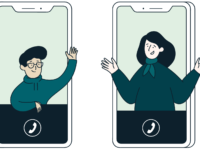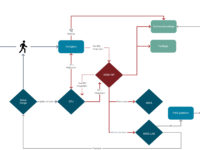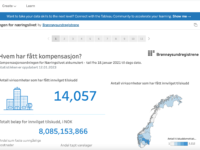"Påkobla Hjelpemiddel" (PH) is a digital solution developed from a digitalization department in Kristiansund Municipality, Norway. This innovative system addresses challenges in inventory, distribution, and logistics, improving the efficiency of delivering assistive devices. PH will be completed as a system in the end of 2024, but is today used by four municipalities that are a part of the innovation.
Country: Norway
Young people struggle to navigate public services organized by sector. DigiUng is a collaborative government initiative coordinating youth-related public information and services in one joint digital ecosystem across sectors of society. The whole ecosystem is available from one place: ung.no, offering information and digital services tailored to the age and needs of its 60 000 daily users.
DigiUng has been a transformative initiative, opening a new realm of possibilities for the public sector.
"Being new in Norway", is a prioritized life event in the Norwegian government`s digitization strategy aiming to:
Provide a holistic and comprehensive public info to the newcomers as end-users
Accelerate newcomers’ participation in work and society
Increase public resources efficiency
The website nyinorge.no/en is addressing those goals and is a hub for accessing public information to newcomers
We used foresight methodology to contribute to more long-term and sustainable service delivery.
To help citizens, health professionals and authorities to handle the Covid-19 pandemic, TISK IKT, a set of interconnected digital solutions, was set up by the Norwegian Directorate of Health. Through exchanging health data, it set a national record in cooperation between 9 government agencies and the medical association to innovate new digital solutions at extremely high speed.
The digital compensation scheme was created to support Norwegian businesses to endure the financial consequences of the Covid-19 pandemic. The scheme designed was quick, efficient, and can be relaunched when needed. Checks are done before the disbursement, which minimizes the need for verification afterwards and also prevents misconduct. Applications are approved by an auditor, and then automatically processed and checked against information from a variety of sources and registers. Information…
The Ukraine war established a commitment to work across sectors to improve digital services to refugees. Focus on end user needs and an unbureaucratic organizational model have produced tangible results such as:
Better update of address information in national register
Electronic identification - access to digital services
Twelve agencies worked with obstacles and bottlenecks in the refugee's user journey, with the objective of good transitions between services.



